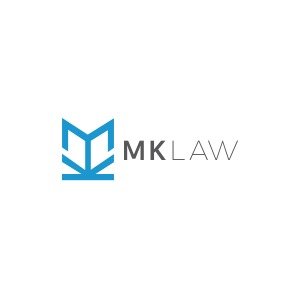Best Employment Rights Lawyers in Auckland
Share your needs with us, get contacted by law firms.
Free. Takes 2 min.
List of the best lawyers in Auckland, New Zealand
About Employment Rights Law in Auckland, New Zealand
New Zealand labor law, including Auckland, advocates heavily for fair negotiation and equity in labor relations, both for the employed and employers. The law provides stipulations on rights such as safety at work, fair remuneration, leaves: annual, sick, and parental, and termination of employment, among others. It additionally covers protections against discrimination, harassment, and unjust treatment at the workplace.
Why You May Need a Lawyer
Legal representation ensures you are aware of your rights, can successfully navigate the legalities surrounding your employment dispute, and obtain the support necessary to advocate for your rights. Common situations might include facing discrimination or harassment at the workplace, disputes over wages or benefits, unjust dismissal, and violations of employee rights and protections stated by the law.
Local Laws Overview
One of the most significant pieces of legislation influencing employment rights in Auckland is the Employment Relations Act 2000. The Act emphasizes good faith behavior, fair dealing, and communication between employers and employees. It also sets the groundwork for collective bargaining and resolving employment relationship issues. There are also specific Acts that address wages (Minimum Wage Act 1983), health and safety (Health and Safety at Work Act 2015), and holidays and leaves (Holidays Act 2003), which significantly govern the employment environment.
Frequently Asked Questions
What protections are there against discrimination?
The Human Rights Act 1993 prohibits discrimination on various grounds, such as race, gender, marital status, religious belief, ethical belief, disability, age, political opinion, employment status, family status, and sexual orientation.
What is considered a fair dismissal?
Employers must be able to justify any dismissal based on substantiated reasons such as misconduct, poor performance, redundancy, or incapability. The process leading to the dismissal should be fair and reasonable.
What are the laws regarding workplace health and safety?
The Health and Safety at Work Act 2015 requires employers to ensure, so far as reasonably practicable, the health and safety of workers, and that others' health is not put at risk from work carried out as part of the conduct of the business or undertaking.
What are the provisions regarding holidays and leaves?
The Holidays Act 2003 provides employees with at least four weeks paid annual leave, public holidays, sick leave, and bereavement leave. Parental leave provisions are covered under the Parental Leave and Employment Protection Act 1987.
Can I claim compensation in case of unjust dismissal?
Yes, if unjustly dismissed, you can lodge a personal grievance and seek remedies such as reinstatement, lost wages, and compensation for humiliation, loss of dignity, and injury to feelings.
Additional Resources
Government bodies such as the Ministry of Business, Innovation and Employment (MBIE), Employment New Zealand, and the Human Rights Commission may provide useful avenues for seeking advice, information, or lodging complaints regarding employment rights and violations. Local community law centers may also provide free legal advice and services relevant to employment rights.
Next Steps
If you need legal assistance regarding employment rights, consider seeking legal representation from a lawyer specializing in employment law. They will be able to advise you about your situation, your rights, and the best course of action. If necessary, they can also represent you in negotiations with your employer or at the Employment Relations Authority.
Lawzana helps you find the best lawyers and law firms in Auckland through a curated and pre-screened list of qualified legal professionals. Our platform offers rankings and detailed profiles of attorneys and law firms, allowing you to compare based on practice areas, including Employment Rights, experience, and client feedback.
Each profile includes a description of the firm's areas of practice, client reviews, team members and partners, year of establishment, spoken languages, office locations, contact information, social media presence, and any published articles or resources. Most firms on our platform speak English and are experienced in both local and international legal matters.
Get a quote from top-rated law firms in Auckland, New Zealand — quickly, securely, and without unnecessary hassle.
Disclaimer:
The information provided on this page is for general informational purposes only and does not constitute legal advice. While we strive to ensure the accuracy and relevance of the content, legal information may change over time, and interpretations of the law can vary. You should always consult with a qualified legal professional for advice specific to your situation.
We disclaim all liability for actions taken or not taken based on the content of this page. If you believe any information is incorrect or outdated, please contact us, and we will review and update it where appropriate.















